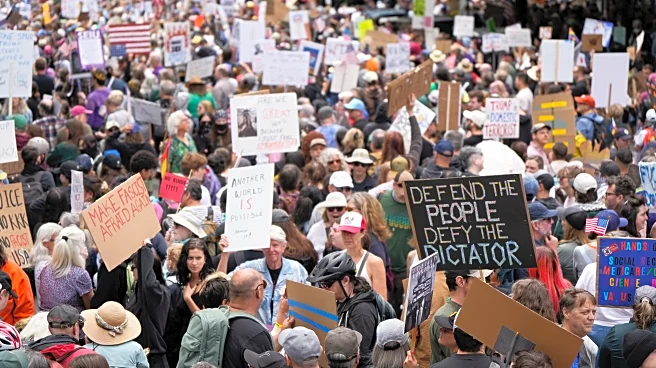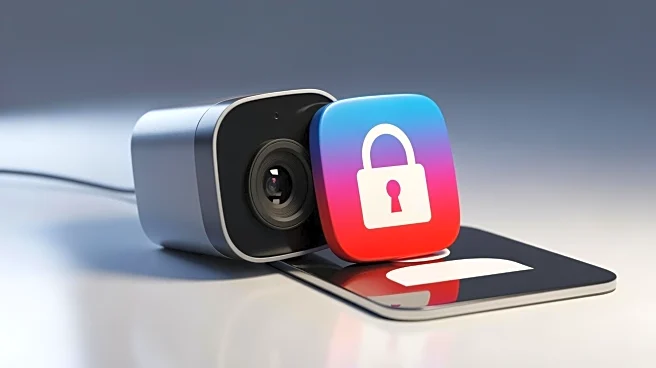What's Happening?
Disney+ and Hulu experienced a significant increase in subscription cancellations in the U.S. following the suspension of Jimmy Kimmel's late-night show by ABC. According to data from the research firm
Antenna, Disney+ saw its cancellation rate double to 8% in September, while Hulu's rate increased to 10%. This surge in cancellations coincided with the suspension of 'Jimmy Kimmel Live' after Kimmel made comments about the death of Charlie Kirk, a MAGA influencer. The suspension was reportedly influenced by pressure from the Trump administration, with the FCC chairman, aligned with President Trump, threatening TV stations to remove Kimmel. Despite the cancellations, both streaming services saw a modest increase in new subscriptions during the same period.
Why It's Important?
The increase in cancellations highlights the impact of political and social controversies on media consumption. The suspension of Jimmy Kimmel's show and the subsequent cancellations reflect the polarized media landscape in the U.S., where political affiliations can significantly influence consumer behavior. The incident underscores the power of political pressure on media companies and the potential consequences for content creators who engage in political commentary. This situation also illustrates the challenges faced by streaming services in maintaining subscriber loyalty amid political controversies.
What's Next?
The response from Disney+ and Hulu to the cancellations remains to be seen, as they may need to address the concerns of their subscriber base to prevent further losses. Additionally, the broader media industry may need to navigate the delicate balance between political commentary and audience retention. The situation could lead to increased scrutiny of media companies' responses to political pressure and their impact on content decisions.
Beyond the Headlines
This development raises questions about the role of media in political discourse and the ethical implications of content censorship. The incident may prompt discussions about the influence of political figures on media freedom and the potential chilling effect on free speech. It also highlights the cultural divide in the U.S., where media consumption is increasingly influenced by political identity.












